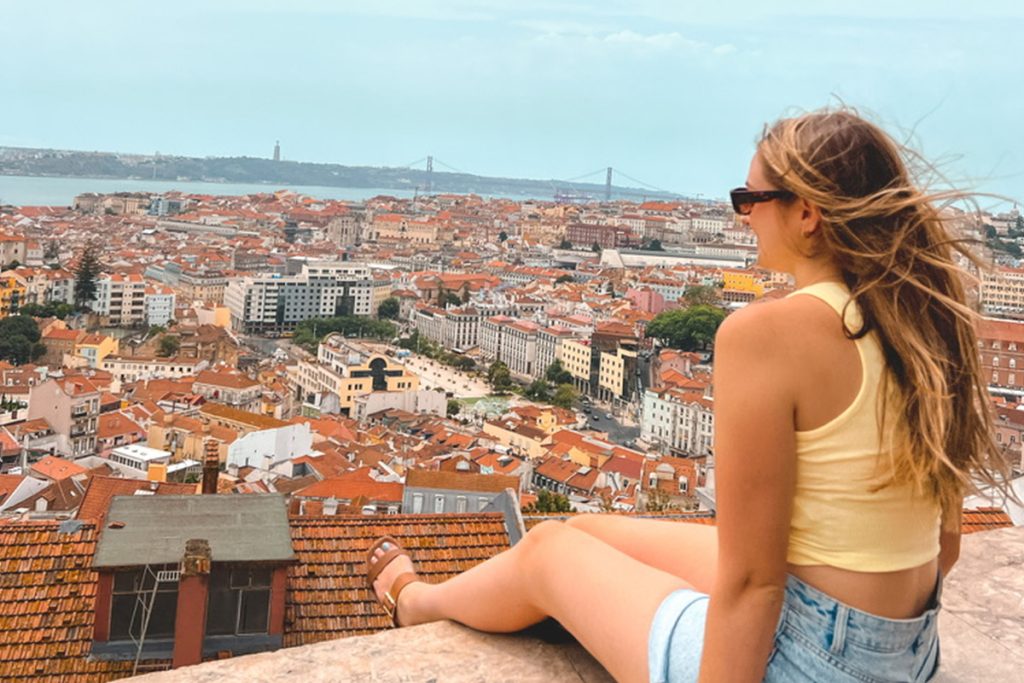You’ve finally bit the bullet and decided you want to take a solo trip, woohoo! Firstly, congrats! Solo travel can be one of the most fulfilling and rewarding things you can do in your life. Understandably, it can also be a little daunting and scary at times – especially if you are female. But don’t let your fear get in the way of having an amazing solo travel experience. Following these simple safety top tips will help bring some peace of mind and ensure a fun, safe trip.
1. Get informed – do your research

First things first, do your homework. Before your trip, it’s essential to check out your destination online, along with any local customs and rules. You don’t want any surprises, right? Make sure you’ve got your visa requirements sorted and get a feel for the culture and dos and don’ts of the place you’re heading to.
2. Stay connected

Make sure to stay connected with family and friends back home. Letting them know your whereabouts and plans can ease the mind of both parties if something unexpected were to happen. It is always a good idea to share your contact information and an outline of your travel plans with at least one friend or family member so they can keep an active emergency contact with you when traveling. Perhaps even give them a copy of your itinerary (if you have a rough one) so they know where you will be travelling along your journey.
3. Make friends

Solo travelling does not mean that you have to be on your own 100% of the time. In-fact, I can tell you that making new friends will not only enrich your experience, but also lessen concerns of safety as well. If this is your first time on a solo trip, have no fear – this will come a lot easier than you expect. Try to chat with travellers in the same place as you and if you build a connection, exchange contact information or social media profiles. Not only does making friends enrich your experience, but having a travel companion can provide that extra layer of security when heading out at night or travelling from one destination to another.
4. Choose your bag wisely

When it comes to choosing the right bag for your trip, it’s essential to be smart about it. While some folks invest in pickpocket-proof clothing, I’d like to keep it real – there’s no such thing as being entirely pickpocket-proof. If someone is determined to snatch something, they’ll find a way (but don’t worry, it’s not all that common). However, it’s still good to take precautions.
My recommendation: opt for a cross-body bag or a secure satchel that you can keep in front of your body and zip up completely. Especially in crowded tourist spots like the Eiffel Tower in Paris or along Las Ramblas boulevard in Barcelona, consider keeping a hand on your bag in front of you at all times. This practice also applies when you’re using public transport like the metro or subway.
And don’t forget to lock up anything you’re carrying on your back or that’s out of sight for extra peace of mind.
5. Taking Uber’s or ride-shares at night
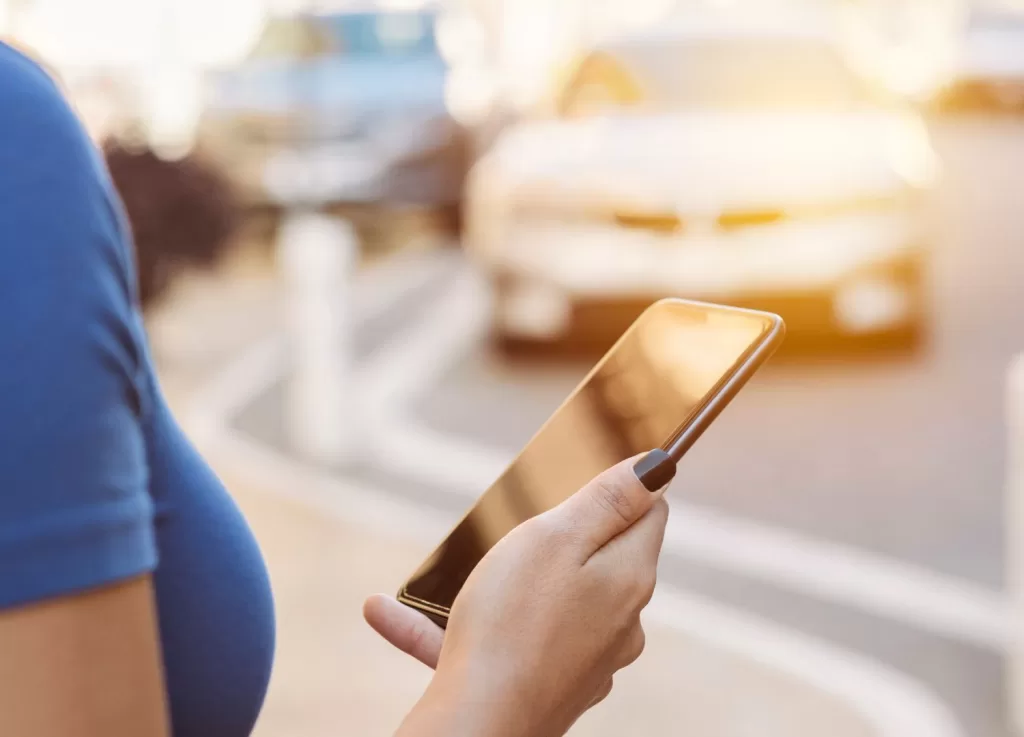
Avoid public transportation late at night. Using a ride-sharing app or taxi service may be more expensive at this time but if you are alone, it’s most likely the safest option and will give you some peace of mind in the dark. Even if the train station or hostel is only a 20 minute walk away, you are better to cop the (usually very cheap fare) to get there safely.
Bonus tip: If you can, for longer taxi trips (eg. to and from your accomodation) do a quick google or calculate an estimate for how much your ride-share service should cost, and confirm this with your driver before entering the vehicle. Unfortunately, sometimes in tourist-heavy areas, taxi drivers can be known to hike up the price for foreigners.
6. Don’t carry you’re passport everywhere
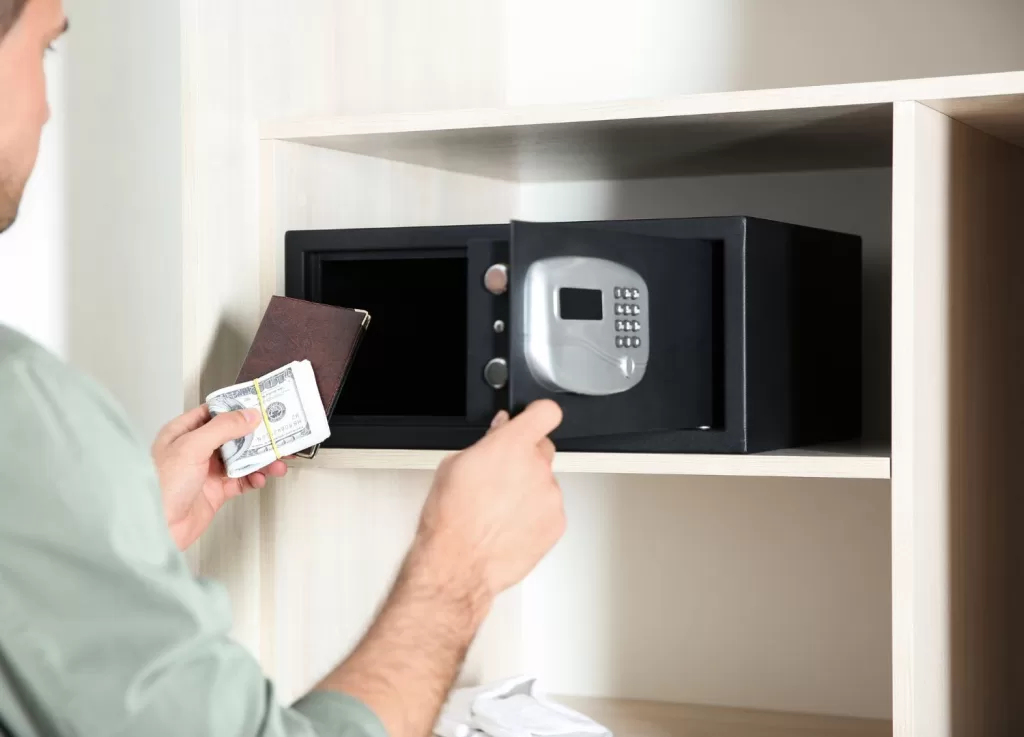
This is a common mistake often made by solo travelers. You might be told that “it’s always safer to keep it on your person”, however by bringing it with you to public places, you increase the chance of losing it or it being stolen. Credit cards and money can be sorted, but losing your passport will cause more of a hassle. If you’re staying in a hotel room, I’d recommend to keep it locked in the safe that is provided. And similarly in hostels, I would keep this (and any valuables) locked away in your locker at all times that you are not using it. I’d also highly recommend taking a photo of your passport, license and any other important documents to keep in a folder on your mobile phone, as well as printing off a copy of your passport. This way you can easily refer to them without having to physically have them on you each time, and will generally come in handy whilst you travel.
7. Downloading offline Google maps

One of the best ways to firstly, get your bearings, but also ease your safety concerns is to be familiar with the city layout that you are visiting. Before you reach your new destination, I would recommend completing a little research, pinning places of interest, landmarks and your accomodation to your Google maps app and then downloading an offline map to your phone. Doing this will ensure that even if you don’t have internet access, you will still be able to find your way back to they place you are staying (and where a yummy place to eat is!).
8. Invest in a reputable travel insurance
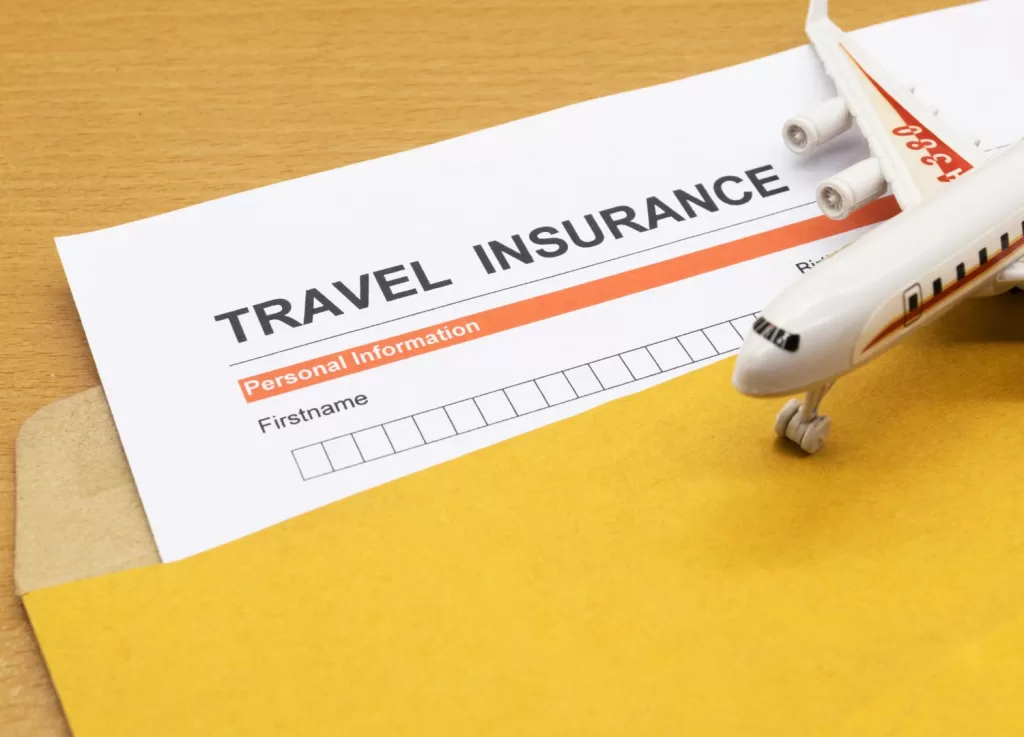
This one might be common sense, but honestly can be easily overlooked (I’m guilty here, and I’ve sadly learnt this the hard way). You want to make sure that at the minimum, you are fully covered for any medical expenses, as well as flight and accomodation cancellations. If you’re like me and carry (probably too many) cameras and electronics with you wherever you travel, be sure to check how much
Some great websites to help you discover which travel insurance is right for you include Confused and Compare the Market.
Bonus Tip: Check if your debit or credit card provider includes travel insurance, because you might be surprised to find they do!
9. Choose a quality travel card

Choosing the right travel card will not only ensure that you keep those pesky conversion fees as low as possible, may also provide you with contingencies if your card were to be lost, stolen or your details stolen online. Most debit cards these days provide an apple pay or google wallet card, but I would definitely recommend always taking a physical card with you as well. You will need this in countries where you must withdraw cash, or countries that don’t have tap & go as easily accessible. If you want to be extra careful, you can even have a secondary card that you keep in a safe place at your accomodation, so that you have a backup ready to go if you misplace the one you’re taking out with you.
One feature of a travel card that I would highly recommend would be the ability to immediately lock your card at the click of a button, as well as generate a new virtual card to use on Apple pay. I’ve had my wallet pick pocketed and card details stolen online 3 times in the last year, so having the ability to do this has meant that I’m been able to remain cool, calm and collected – and not worry about having my money stolen.
Some personal favourite travel cards that I vouch for:
Wise
- Use Google or Apple Pay straight away, and generate a new one at any time.
- Freeze and unfreeze your card instantly.
- Make 2 withdrawals of up to 200 GBP each month for free per account. After that, we’ll charge 0.5 GBP per withdrawal. There’s a 1.75% fee on any amount you withdraw above 200 GBP. *Fees vary depending on the country where your card was issued.
- Spend abroad with the real exchange rate. No markups, no sneaky transaction fees.
- Load multiple currencies into your account.
- Responsive customer support if anything should happen (have helped me through multiple times having my card details swiped, and reimbursed me for any amounts taken).
Sign up using my referral code here.
Revolut
- Use Google or Apple Pay straight away, and generate a new one at any time
- Freeze and unfreeze your card instantly.
- Load multiple currencies into your account + transfer (29 currencies)
- Organise your money into pots – and in different currencies even!
- Round-up purchases functionality
- Competitive exchange rates
- Withdraw up to £200 or 5 withdrawals per rolling month (whichever is reached first) with no withdrawal fees charged by us.
- Option to have a joint account
- Fantastic customer support.
Sign up using my revolut refferal code here.
10. Use a VPN

Using a VPN (Virtual Private Network) when traveling can offer several benefits (not exclusively related to safety) and enhance your online experience. Here are some reasons why you should consider using a VPN while traveling:
- Security: Public Wi-Fi networks, such as those found in hotels, airports, or coffee shops, are often unsecured and can be a breeding ground for hackers or cybercriminals. When you connect to a VPN, it creates an encrypted tunnel between your device and the VPN server, ensuring that your internet traffic is secure and protected from prying eyes. This helps safeguard your personal information, such as passwords, banking details, or sensitive documents, from potential threats.
- Privacy: A VPN helps maintain your privacy by masking your IP address and location. It routes your internet traffic through a remote server, making it appear as if you’re browsing from that server’s location rather than your actual physical location. This prevents websites, advertisers, or even government agencies from tracking your online activities and collecting data about you. By using a VPN, you can browse the internet anonymously and maintain your privacy rights.
- Access to Restricted Content: Some countries or regions impose restrictions on certain websites, social media platforms, or online services. With a VPN, you can bypass these restrictions by connecting to a server located in a different country where the content or service is accessible. This allows you to enjoy unrestricted access to your favorite websites and services while traveling, ensuring you don’t miss out on important information or entertainment.
- Overcoming Geographical Limitations: Streaming services like Netflix, Hulu, or BBC iPlayer often have region-specific content libraries due to licensing agreements. By using a VPN, you can change your virtual location and access content that may be available only in your home country. This means you can continue to enjoy your favorite shows, movies, or sporting events while abroad. Hello – of course you want to be binging the latest series on your 7 hour bus ride to a new city!
- Cost Savings: In some cases, flight tickets, hotel bookings, or car rentals can vary in price based on your location. By using a VPN to switch your virtual location to a different region, you can potentially find better deals or lower prices for travel-related services.
- Secure Remote Access: If you need to connect to your work or home network while traveling, using a VPN ensures a secure connection. It encrypts your communication, protecting sensitive company information or personal files from interception by hackers or eavesdroppers.
It’s important to note that while a VPN offers enhanced security and privacy, it doesn’t make you completely invulnerable. I would advise you to use reputable VPN services, such as SurfShark or NordVPN.
11. Learn a few words in the local language

Not only is learning a few key phrases a great way to show respect to locals and immerse yourself in a foreign country, but it may also come in handy for safety reasons. Yes, No, Hello, Please, Excuse me and Thank-you are always great phrases to start with, however you may even want to branch out to learning sentences such as “I need help please”. Whilst this might be a little difficult, luckily we live in a day and age where we have easy access to tools such as Google translate. Downloading this app to your phone before you leave, as well as the local language for the place you are visiting, will help you if you ever need to urgently translate information in real time.
12. Purchase a local sim card or eSIM
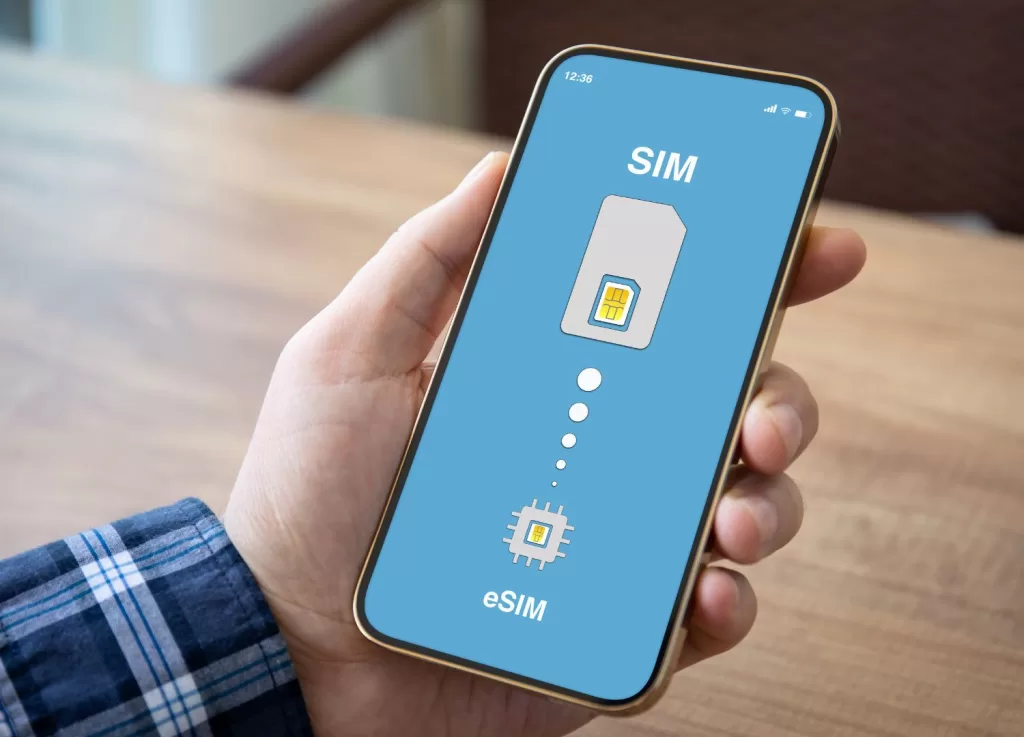
Purchasing a local SIM card / eSIM when traveling not only saves you from those accidental absurd international data roaming charges, but also contributes to your safety and security. By having a local number, you can easily contact local emergency services if needed. Having a reliable and local mobile network connection also ensures that you can stay connected with your travel companions or reach out for help in case of any unforeseen circumstances. Whether it’s navigating unfamiliar locations, accessing maps and transportation information, or staying in touch with loved ones, having a local SIM card enhances your safety and peace of mind while traveling. If you’ve got a newer phone, you also have the option of having 2 sim cards at once through purchasing a secondary e-sim. E-sim’s are quick and easy to set up, and allow you to be contacted still through your original number, but use data on your new travel sim.
I like to use Airalo because it’s super easy to install and they have every country that you could possibly need to choose from + region packs.
13. Don’t wear expensive jewelry

Avoid wearing expensive jewelry, especially necklaces and bracelets. Earrings might be less tempting targets for theft due to their location, but it’s always better to stay cautious. Sentimental pieces, in particular, should be left at home to avoid the risk of losing or having them stolen. When you’re in certain countries, wearing flashy, valuable accessories can draw unwanted attention, so it’s wise to keep things subtle. Instead, picking up small, inexpensive jewelry items as souvenirs during your travels can be a delightful way to commemorate your journey.
14. Consider joining a group trip

For those seeking to explore unfamiliar and potentially challenging destinations like parts of the Middle East or Africa, group travel is a smart choice. It comes with various benefits to enhance your journey while ensuring your safety.
Group trips offer the expertise of local guides who provide insights into the culture and history of the region, enhancing your understanding and confidence in exploring. Safety comes with numbers, creating a reassuring environment in places that may initially seem daunting. Plus, group trips handle logistics, like accommodations and transportation, allowing you to focus on the adventure. Shared experiences and pooled resources make group travel not only safer but also cost-effective for exploring diverse landscapes and cultures.
15. Trust your instincts

Lastly, make sure to trust your instincts if you feel uncomfortable in any situation. We don’t regularly give our intuition enough credit, but our spidey senses are often right.
Your trip is going to be amazing, so don’t get too caught up in fear or “what ifs”. Most of the time, if something is going to happen it is out of your hands. So stay smart, and have a great time on your solo travel adventures.



